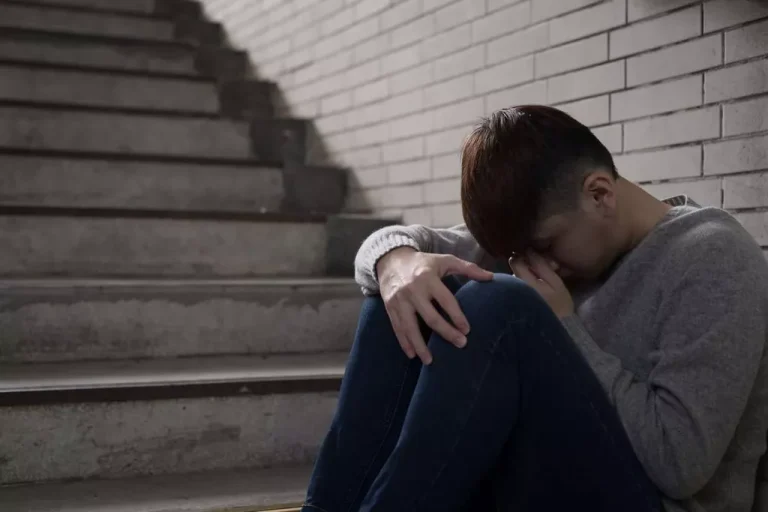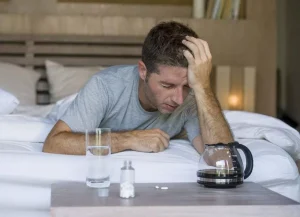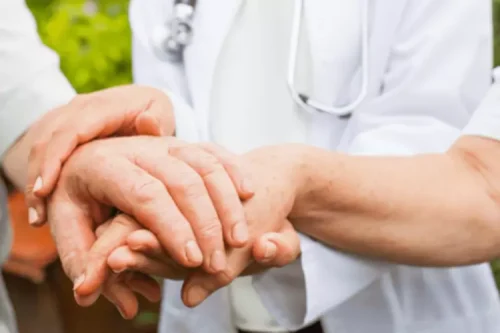REM sleep is vital for healthy brain development, the National Sleep Foundation noted. Not getting enough REM sleep can make concentrating difficult, cause forgetfulness and leave people feeling excessively sleepy during the day. Poor sleep alcohol insomnia can also contribute to a wide range of health problems, according to the NIH, including obesity, high blood pressure and depression. “First of all, it increases our initial deep sleep, disrupting our sleep stages’ overall balance,” he said.
- This is all due to how alcohol impacts your sleep cycles, along with its other physical and mental health effects.
- American Addiction Centers (AAC) is committed to delivering original, truthful, accurate, unbiased, and medically current information.
- Abnormalities in the timing of REM sleep wouldappear to last longer into the abstinence period.
- Experts state that acute insomnia lasts up to a few days to weeks, while chronic insomnia continues for several months.
- But while you may think a few beers or glasses of pinot lull you into slumber, alcohol before bed actually messes with your sleep.
- To our knowledge, only five such studies havebeen published with a total of 19 men and 5 women evaluated in experiments that vary inthe dose of alcohol administered, the timing of the alcohol relative to sleep, and thenumber of nights of consecutive usage.
Ways Alcohol Disrupts Your Night

In the second half of thenight, sleep is disrupted, with increased wakefulness and/or stage 1 sleep. It is estimated thatalcohol is used by more than one in ten individuals as a hypnotic agent to self-medicatesleep problems (Arnedt, 2007). At this time when poly-substance dependence iscommon, it also is becoming increasingly relevant to investigate the interactive effects ofsubstances of abuse on sleep behavior and regulation. Heavy alcohol use can contribute to the development of insomnia, a sleep disorder characterized by difficulty falling asleep and staying asleep. As many as three quarters of people with alcohol dependence experience insomnia symptoms when they drink.

How Does Alcohol Affect REM Sleep?
Why you are having to urinate more at night isn’t completely clear to me. If you are drinking more nonalcoholic beer than you were drinking regular beer, this would explain it. The effect of alcohol on urination is complex; alcohol initially suppresses the antidiuretic hormone (ADH), which causes increased urine output. The ADH levels are lower later on, so it’s possible that while drinking beer, you got rid of your fluid faster. It’s wise to stop drinking caffeinated drinks in the late afternoon and evening, as caffeine’s effects can last four to six hours after consumption. That means drinking it too close to bedtime could keep you from getting the rest you need.
Causes and risk factors
However, while you may feel more relaxed and drift off to sleep quicker after having a drink, when morning rolls around, you might find yourself wondering why you feel so groggy and tired—especially after falling asleep so easily. Retrospectively, subjects with AD reported the presence of insomnia prior to the onset of AD (Currie et al., 2003a). Sleep disturbance has been shown to predict subsequent alcohol consumption in adolescents and adults (Breslau et al., 1996, Wong et al., 2004, Wong et al., 2010, Wong et al., 2015, Ford and Kamerow, 1989, Weissman et al., 1997).
- These adverse effects could persist over a longer time, i.e., throughout adulthood, and could influence morbidity and mortality.
- However, thosewith delirium tremens did have altered rhythms (Mukai et al.1998; Fonzi et al. 1994).
- Chronic insomnia can mean you don’t get enough deep sleep, you wake up nonstop throughout the night, or you can’t doze off to begin with.
- Grand mean evoked potential waveforms for alcoholics (red lines) and control subjects(black lines) for the FP1, Fz, FCz and Cz electrode sites.
- But after that, people experienced a diminished quality of sleep and faced a much higher risk of alcohol dependence.
How to sleep better after drinking alcohol
Trusted Source UpToDateMore than 2 million healthcare providers around the world choose UpToDate to help make appropriate care decisions and drive better health outcomes. UpToDate delivers evidence-based clinical decision support that is clear, actionable, and rich with real-world insights.View Source Insomnia is also very common in people who are in withdrawal or early recovery from alcohol addiction. In addition to altering your sleep architecture, alcohol can disrupt your sleep by interfering with contributing to sleep disorders and interfering with circadian rhythms.
Insomnia and Alcohol Use Disorder
You may be wondering what it is about alcohol that makes you feel sleepy, especially if you’re also experiencing adverse symptoms of insomnia. Alcohol depresses your central nervous system, which means your brain activity, breathing, and heart rate all slow down when you’re intoxicated. When you’re heading to bed after a long day, a few drinks can feel like the perfect way to get some shuteye. But the truth is, alcohol’s alleged “sleep-enhancing” benefits may not be all they’re cracked up to be. However, as the enzymes in your liver metabolize the alcohol, removing it from your body, the sedating effect wears off. That leads to a “rebound effect” in which you experience lighter, more disrupted sleep.

Can Other Drinks Lower Blood Pressure?
Jackson et al. note that the prevalence of short sleep across alcohol consumption patterns was more variable among whites, and the majority of Whitehall II participants are white. Heavy drinking can make the sleep- and circadian rhythm-disrupting effects of alcohol worse. But even a regular, moderate routine of two to three drinks a day is enough to create sleep and performance problems for many people.
- At the 6-month follow-up, subjects with AD who relapsed had significantly higher PLMI and PLMI with arousals, than those who did not.
- When you are dehydrated, the volume of water in your blood goes down, concentrating sodium levels.
- It also leads to lighter, more restless sleep as the night wears on, diminished sleep quality, and next-day fatigue.
- Drinking appears to have differential effects on sleep depending on chronic versus acute dosage18 Our cut-offs for drinking exposures and sleep problems are largely arbitrary and it is possible to other subtle relationships are masked.
Does alcohol affect men’s and women’s sleep differently?
However, during the night, as the amount of alcohol in your blood drops, you are likely to wake up. As a result, when consumed in excess, alcohol can lead to shorter sleep duration and a poorer quality of sleep. Other primary sleep disorders may occur more commonly with AD and present as insomnia in the clinical setting.
- Alcohol can help people feel more relaxed and sleepy, but it’s also linked to poor sleep quality and duration, according to the Sleep Foundation, a U.S. nonprofit organization.
- It may interfere with medications for diabetes, high blood pressure, and suppressing the immune system.
- Figure 2 presents a conceptual model for insomnia in AD during recovery.
- A new study assesses the effect of alcohol consumption on the restorative quality of sleep.
- So, while the occasional drink might disrupt your sleep, it won’t necessarily cause the same negative long-term effects that heavy drinking does.
- So, does alcohol help you sleep or is it actually interfering with your quality of rest?
The Best 7 Teas for Sleep

These include obstructive sleep apnea (OSA), periodic limb movement disorder (PLMD), and delayed phase sleep disorder (DSPD). AD has also been linked with periodic limb movement disorder, circadian rhythm abnormalities, and obstructive sleep apnea, which are discussed below. There is a lack of evidence that alcohol consumption is a trigger for sleepwalking (Pressman et al., 2007), although it has been linked epidemiologically to night terrors, which is another parasomnia (Ohayon et al., 1999). Before we look at the effects of alcohol on sleep in detail, here’s the basic bottom line. The more you drink, and the closer your drinking is to bedtime, the more it will negatively impact your sleep.

Leave A Comment